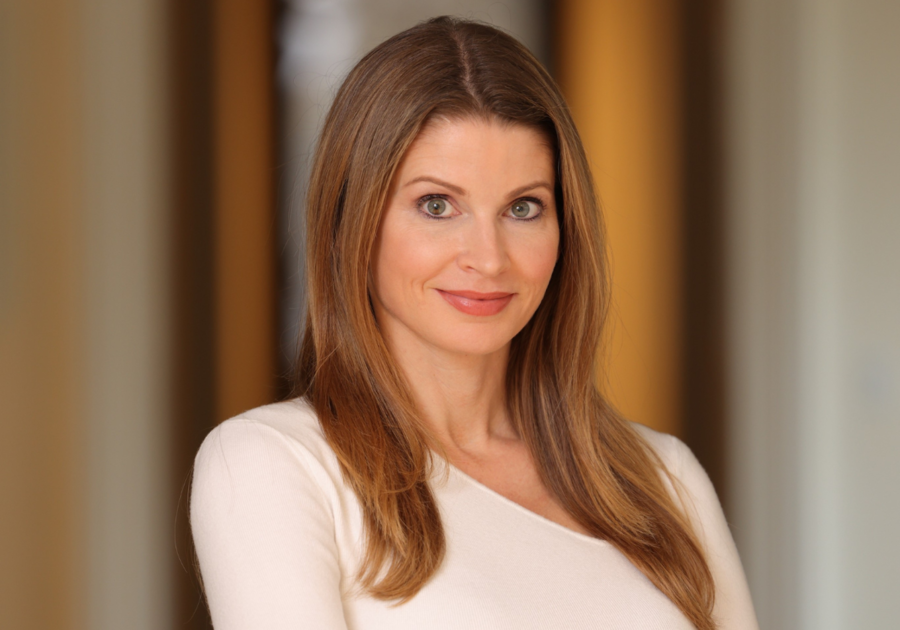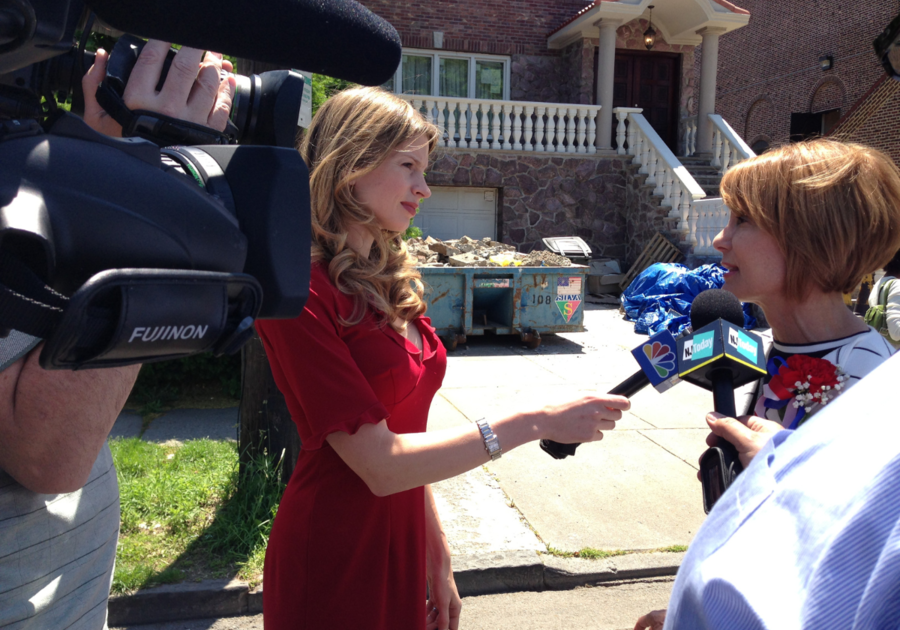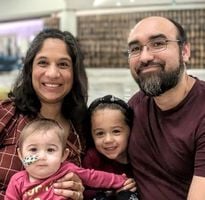Jen Maxfield, an Emmy-award winning reporter and anchor for NBC New York, talks about her new book "More After The Break: A Reporter Returns to Ten Unforgettable News Stories".
How do you modify/explain complicated or "tough" news to kids?
When my children were really young, and I didn't feel it was age appropriate to talk to them about what I was reporting, I might avoid the subject entirely. Now that my kids are older, it's important for me to talk to them about what's happening in the world, because I want them to hear it from me first. I also want them to be able to direct their questions to me. The strongest influence is the one from the home.
I would say for younger children, I write about Mr. Rogers in chapter two of my book. When he was little he watched the news, and felt scared. His mom told him to look for the helpers. When something bad has happened, you always look for the people who are helping. I've found over the years, covering hundreds of chaotic, tumultuous, and tragic situations, that in most cases, there were people who I eventually told my children about. Heroes, helpers, people who are helping other people in times of need.That's where the uplifting nature of the news comes from. If you focus on some of that with your children, I find that it can be very reassuring for them.
Your book highlights the silver linings in several memorable news stories, How do you stay positive when reporting news that isn't always so positive?
The book really speaks to the context, and we have these 10 people, and the stories that landed them on the news. I think what you see as time goes on, is that as tragic as the original story was, you can see positive change does sometimes come from these things. It could be a new law that's passed to prevent something bad from happening. It could be someone who survived, people finding happiness. That was really the rewarding aspect of my book, being able to return to people after I had seen them on what might have been the worst day of their life, and then to be so inspired by the way they came out of it. I think that's the message for everyone reading the book, is we all go through tough times.
What would you tell someone who shies away from the news for the fact of it sometimes being tragic?
I don't think that you can ignore what's happening in the world. From a larger standpoint, having an engaged public who understands everything from their town budget, to the laws of their state, it's incredibly important to be educated. I understand that sometimes people feel that the news is all negative, and that perhaps it's going to upset them to see all of it. I think what's also upsetting is when people just seek out on the news, or on their social media, opinions that confirm what they already think. One of the great privileges of telling other people's stories, and being out in the community these past two decades, is interacting with people who might have different opinions than mine. I don't think that the trend toward only trying to consume news that confirms what you already think is a very healthy trend for society.
I would point to this book as a great example of stories that may have been negative or scary the day we aired, but look at what these people have done. It's absolutely amazing. The strength of people, the unity, and the fact that we all need to be educated about everything that's going on in the world right now.
You've brought up the importance of gratitude in previous interviews. Does facing tragedy often give you a "live every day like it's your last" mindset?
I definitely take a carpe diem approach in my life. I think part of that is having been adjacent to so much heartache, seeing people go through some really tough times, and realizing that you can't take anything for granted. I'm very grateful for the health of my family, and for my own health.
There's a really good line in chapter four. It's not my line, it's Isabella de la Houssaye, an Ironman triathlon finisher. She did the Ironman Triathlon while battling stage four lung cancer, and she has this great line in the book where she talks about the difference between hope and joy. Here's a woman who's given six months to live four years ago, and she's still alive and thriving. What she explained was, hope is something that relates to the future. Hope is something that you're looking at, and hoping will happen in the future. She said you can find joy every day, because joy is just a mindset of looking around and finding something to be grateful for, to be happy about. That's how she approaches her life, with joy, not so much hope, but real joy. I thought that was something we could all learn from.
Which revisited stories surprised you the most?
In many ways they all did. In some cases, I didn't even know if the people would still be alive. I would say that the case in chapter four, the five year old who needed bone marrow transplant from her sister in El Salvador, she was certainly one of the hardest to find because she was only five years old when I first interviewed her. I had a terrible fear, which I've had in the past with other stories, where if I would Google them, I would hope that their obituary wouldn't come up. So to learn that she's survived, and she's healthy, and she's thriving...that was amazing. So many wonderful things have happened since her sister saved her life 10 years ago, and the only way I found her was through going to visit this coffee shop in Montclair where I thought her grandfather worked, and that was eventually how I tracked her down.
What is the greatest lesson you learned in writing this book?
I think the greatest lesson I learned is about people who've been tested in various ways, whether it's losing a child, having a serious illness, or surviving some sort of attack. I just think that people make a choice, and in the case of the people in my book, they made a choice to survive. They made a choice to find happiness again. The strength of the human spirit. I'm just so humbled that all of these people chose to trust me, not once with the story right on the first assignment, but now a second time for this book.
Check out https://www.jenmaxfield.com/events/ for all of Jen Maxfield's upcoming book signing events!




